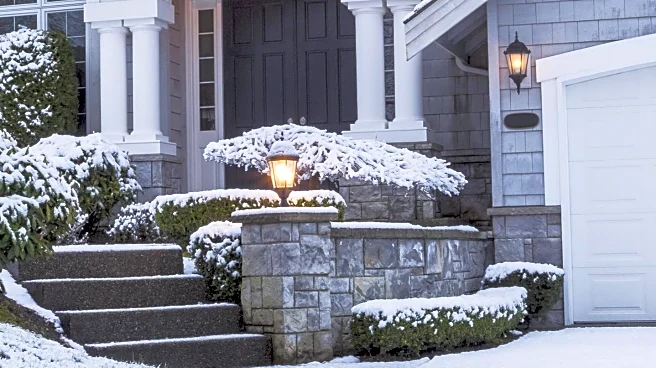What's Happening?
Consumer Reports has released a set of recommendations for homeowners to prepare for the upcoming winter season. According to Paul Hope from Consumer Reports, taking proactive measures can significantly reduce energy bills and prevent expensive repairs.
One of the key suggestions is to insulate exposed copper or PVC pipes in various parts of the home, such as basements, attics, and crawl spaces, to prevent them from bursting. Additionally, insulating attics can help retain heat within living spaces and prevent the formation of ice dams on roofs, which can lead to costly damage. Homeowners are also advised to schedule service appointments for chimneys, furnaces, or boilers to ensure they operate efficiently and safely during the colder months. Outside the home, inspecting roofs for loose shingles, cleaning gutters, and checking trees for potential hazards are recommended to mitigate damage from winter storms.
Why It's Important?
The guidance from Consumer Reports is crucial as it highlights preventive measures that can save homeowners significant amounts of money. By insulating pipes and attics, homeowners can avoid the high costs associated with burst pipes and roof repairs due to ice dams. Ensuring heating systems are in optimal condition not only enhances safety but also improves energy efficiency, leading to lower utility bills. These preparations are particularly important in regions prone to severe winter weather, where the risk of damage is higher. The advice also underscores the importance of maintaining the exterior of homes to prevent damage from winter elements, which can be both financially and structurally detrimental.
What's Next?
Homeowners are encouraged to act on these recommendations promptly to ensure their homes are winter-ready. As the colder months approach, demand for professional services such as inspections and repairs is likely to increase, potentially leading to longer wait times and higher costs. By preparing early, homeowners can avoid these issues and ensure their homes are protected against the harsh winter conditions. Additionally, staying informed about weather forecasts and potential storms can help homeowners take timely action to safeguard their properties.
















